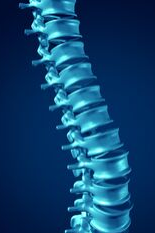NIH Awards $2.8M Grant to Further Dementia Research
The National Institutes of Health (NIH) has awarded a $2.8 million RF1 grant to a University of Maryland research team investigating potential links between spinal cord injury and dementia and new avenues for treatments. Junfang Wu, an associate professor with the University of Maryland School of Medicine's Department of Anesthesiology, and Steven Jay, an associate professor with the University of Maryland’s (UMD) Fischell Department of Bioengineering, are the project lead and co-PI, respectively. Recent evidence indicates that patients with a spinal cord injury and no concurrent brain injury are at a high risk of dementia associated with substantial cognitive decline and loss of memory capacity. “Yet, little is known about the mechanisms of spinal cord injury-induced dementia or its relationship to the age of onset or age-related neurodegenerative disorders, such as Alzheimer’s disease,” Wu said. While researchers have much to learn about the factors that connect spinal cord injuries to dementia, many believe this linkage results from neuroinflammation in the brain. Wu, Jay, and fellow researchers are working to understand if the neuroinflammation that occurs may be induced by circulating extracellular microRNAs – or exRNAs – in the blood. These microRNA molecules exist outside the cells in which they are transcribed and are typically associated with a carrier molecule or vesicle that prevents their degradation. In particular, the team is focusing on exRNAs carried through blood by extracellular vesicles (EVs) – ubiquitous, cell-derived nanoparticles that naturally transfer biomolecules between cells. The researchers hope that by better understanding how EV-associated exRNAs induce inflammation, they can ultimately design a therapeutic approach to prevent or counteract the effects. "The potential to discover and leverage new biological knowledge to rationally design a novel approach to central nervous system therapy is exciting and could have implications beyond dementia and spinal cord therapy," Jay said. The NIH grant was awarded through the National Institute on Aging (NIA) and administered by the National Institute of Neurological Disorders and Stroke (NINDS). Together, the NIA and NINDS have established research priorities and fund research in Alzheimer’s disease and Alzheimer’s disease-related dementias within the NIH. In addition to Wu and Jay, associate professor Bogdan Stoica and professor Alan Faden of the University of Maryland School of Medicine are co-investigators on the grant. Like Wu, both Stoica and Faden serve appointments in anesthesiology and anatomy neurobiology; Faden also holds affiliations with neurology, psychiatry, and neurosurgery. In 2017, Wu and Jay were jointly awarded a University of Maryland Brain, Health and Human Performance grant to launch their collaborative spinal cord injury research. The $100,000 investment enabled the research duo to generate the preliminary data they needed to pursue NIH funding. "The seed funding was absolutely essential in enabling us to pursue a new research direction together,” Jay said. “I doubt we would have been able to get the NIH award without that initial support.” The UMD Brain, Health and Human Performance initiative is funded in part through the University of Maryland’s Mpowering the State strategic partnership, connecting Maryland’s two most powerful public research institutions: the University of Maryland, Baltimore, and the University of Maryland, College Park.
Related Articles: October 4, 2019 Prev Next |


